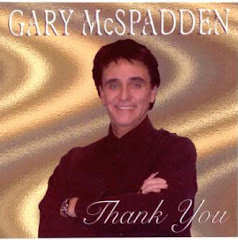One of the toughest decisions facing authors today, is what they will do about professional, positive, representation. Agents are like plumbers. For some things you can't just can't go it alone but for many others, it isn't absolutely necessary.
There are a list of "to do's" that come before hiring an agent and the list gets longer all the time.
In this age of electronic, on demand publishing, what can you do ahead of a representative to establish yourself, build a brand, lay out a solid, long term platform and find your reader base?
How can you create your finished product in publishable form, ready to be handed over to the wolves, ahead of hiring a representative?
What steps can you take to be an unpublished author of substance, who's work is ready for professional, positive, representation?
How do you know when you are nearing and / or crossing that fine line between being ready for representation and in need of representation?
Mike Hyatt has been there and done that. His suggestions are quite clear and on topic. He sits at the head of the largest publisher of Christ honoring literature in the world and knows something about this topic.
Before You Hire a Literary Agent
http://michaelhyatt.com/2009/06/before-you-hire-a-literary-agent.html
A while back, I received an email from one of our authors, notifying us that he had hired a new literary agent. My first thought was, You’ve got to be kidding! Of all the agents out there, why would you pick THAT one!
Don’t get me wrong. I have nothing against agents. Not only was I a literary agent for six years, I have been represented by an agent on all of the books I have personally published. And, of course, as a publisher, I deal with agents on a daily basis.
A few of these agents are close, personal friends. Many of them add real value to the publishing process. However, some of them do irreparable harm to the author’s reputation. Like most professions, it is a mixed bag. You owe it to yourself to do your homework.
As an author, the most important thing you need to understand about agents is that they represent YOU. If an agent has a good reputation (i.e., a brand), that reputation will accrue to your benefit:
* If the agent is knowledgeable and well-read, publishers will assume that you are a person of literary merit—someone to be taken seriously.
* If the agent is prompt and responsive, publishers will assume that you are cooperative and low-maintenance—someone they want to work with.
* If the agent is reasonable in the terms they request, publishers will assume that you are committed to a win-win paradigm—someone they want to invest in.
However, if an agent has a bad reputation, that reputation will also accrue to your detriment:
* If the agent isn’t well-read and isn’t conversant with your topic or proposal, publishers will assume that you don’t know what you are talking about either.
* If your agent is disorganized and unresponsive, publishers will assume that you are uncooperative and high-maintenance.
* If the agent is unreasonable and greedy, publishers will assume that you are committed to a win-lose paradigm and just in it for the money.
Frankly, I am amazed that so many authors hire agents without checking references. To be blunt, this is just stupid. You wouldn’t do this with an employee; why would you do it with an agent?
In hiring new employees, I have found that checking references is the single most important thing I can do. Prospective employees will tell you all kinds of things in an interview. They will spin their story to their advantage. But, as Ronald Reagan used to say, “trust but verify.” You never know for sure until you check the references. The same is true in hiring a literary agent.
Before you hire a literary agent, I would encourage you to:
1. Contact at least three authors whom the agent currently represents. Ask the agent for a list, including telephone numbers. Obviously, these will be clients the agent thinks will speak well of him. Regardless, you will still learn a great deal by talking to these clients. If possible, talk with them on the phone. People will tell you things on a phone call that they will not put in writing.
2. Contact at least three publishers with whom the agent has recently done business. Again, ask the agent to provide a list. Ask the publisher, four questions:
* “Did the agent present a compelling proposal?”
* “Did the agent provide you what you needed to make a good decision?”
* “Did the agent respond to your calls and emails in a timely manner?”
* “Was the agent fair and reasonable in the negotiating process?”
If you already have an agent, it is important that you monitor how you are being represented. Check in with your publisher from time to time and make sure that you are being well-represented. Keep in mind that the publisher will be reluctant to be candid unless he can count on your confidentiality.
By the way, I maintain a “List of Literary Agents who Represent Christian Authors”
http://michaelhyatt.com/2007/11/literary-agents-who-represent-christian-authors.html
Get Diversity in Your Communication Skills
5 days ago








It all sounds good advice. I suspect the reason authors don't do all the checking is because after enough rejections they feel like if someone says yes, well, it's got to be better than no.
ReplyDeleteI really take exception to the phrase "hire a literary agent." We don't HIRE them, they HIRE us. That's often how we get stuck with the bad ones--desperation. If I could pick up the phone and call one, like I do a realtor or an insurance agent, things would work better. If we COULD actually hire the agent of our choice, I wonder what would be different. Ideas? Oh yeah, we can fire them but that's the easy part--and we're right back where we started.
ReplyDelete